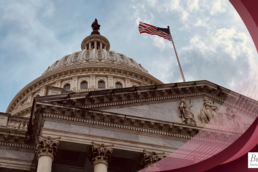U.S. Citizenship and Immigration Services (USCIS) has issued new policy guidance that significantly changes how officers exercise discretion when reviewing immigration benefit requests. The updates, effective immediately, place a sharp focus on applicants’ past conduct, including social media activity, and make it clear that anti-American or antisemitic behavior will be treated as a serious negative factor.
What Has Changed About This Policy?
The USCIS Policy Manual has been updated to address a few different areas:
- Discretionary Decisions: Officers must now weigh evidence of anti-American activity, antisemitism, or support for terrorist organizations more heavily when considering applications.
- Social Media Vetting: USCIS has expanded its vetting procedures to include broader social media reviews, with special attention paid to any anti-American rhetoric.
- EB-5 Investor Petitions: Their guidance clarifies how discretion applies in cases involving fraud, national security concerns, or other threats to the U.S.
- Compliance with Immigration Law: Past compliance with immigration rules remains a critical factor in whether a case is granted or denied, including things like overstays or missed paperwork deadlines.
In other words, USCIS is making it clear: immigration is not just about paperwork, it’s also about character, conduct, and demonstrated respect for U.S. laws and values.
Why This USCIS Policy Change Matters
For applicants, this update proves the fact that immigration benefits, whether it’s a green card, work permit, or parole, are not guaranteed. They are privileges that are subject to government discretion. A strong application has to now go beyond meeting the legal requirements; it must also hold up to scrutiny of the applicant’s behavior both on and offline.
As Rosanna Berardi, Esq., Managing Partner of Berardi Immigration Law, explains:
“USCIS is drawing a hard line. The message is that immigration benefits are for those who respect the United States, not those who disparage it. This is a reminder that every part of your record matters, from prior applications to your social media history.”
Practical Takeaways for Applicants
- Review Your Online Presence: Social media vetting is real and expanding. If your public Facebook, Instagram, LinkedIn, X, Reddit or any other accounts contain content that could be interpreted as anti-American or discriminatory, it could seriously hurt your case.
- Understand Discretion: Even if you meet the basic eligibility criteria, USCIS has wide latitude to deny benefits if negative factors are present.
- Be Honest and Consistent: Past misrepresentations, fraud, or noncompliance with any form of immigration law will weigh heavily against you, and could block your immigration path.
- Work with Experienced Counsel: Navigating discretionary reviews is complex. Legal guidance can help you present the strongest possible case.
Effective Date and Scope
This guidance is effective immediately and applies to all cases pending or filed on or after the date of publication. It also overrides any prior guidance, meaning there’s no “grandfathering” under older, less-strict rules.
Frequently Asked Questions
- What counts as “anti-American activity”?
USCIS has not provided a complete list, but examples may include public statements, online content, or affiliations that endorse violence against the U.S., advocate against its interests, or promote activity from terrorist organizations. - Does this mean my social media will always be reviewed?
USCIS has expanded the scope of vetting to include more categories of benefit requests. If discretion applies in your case, assume your online presence could be reviewed and scrutinized. - Can I fix past mistakes, like an old visa overstay or questionable online post?
Past violations don’t automatically disqualify you, but they will weigh against you. What matters is how your full record looks when balanced. Cleaning up your social media pages is never a bad idea during an immigration journey, but a qualified attorney can help clarify past mistakes and highlight positive factors in your application.
What This USCIS Policy Change Means For You
This policy update is part of a broader trend: USCIS is scrutinizing discretionary cases more closely and prioritizing national security and public trust. For applicants, that means there is less room for error.
If you have questions about how this new guidance may affect your case, or if you’re preparing to file any immigration application, contact Berardi Immigration Law. Our team has decades of experience helping clients navigate the complexities of U.S. immigration law with professionalism and care, and we would be glad to help you begin your journey towards your American dream.
Ready to have Berardi on your side?
Whether you’re a business looking to hire or a professional hoping to relocate, immigration law can be complicated. But you don’t have to do it alone. Put our experience to work for you.



